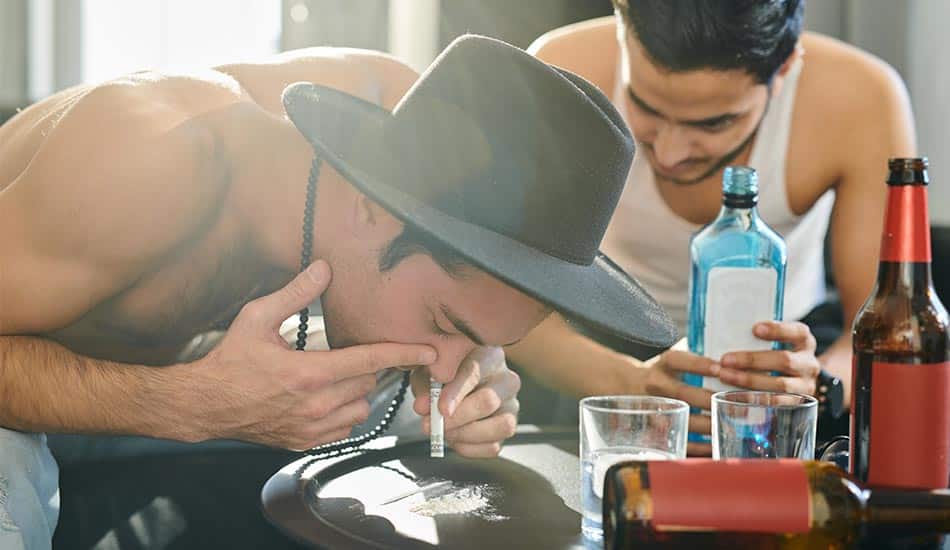- Home
- Treatment
Treatment Designed for You.
Get in touch with Absolute Awakenings today and begin your journey to long-term healing & recovery. - What We Treat
Get help today, start your journey!
An Experience in Healing
Get in touch with Absolute Awakenings today and begin your journey to long-term healing & recovery. - About
The Rehab You've Been Looking For
Get in touch with Absolute Awakenings today and begin your journey to long-term healing & recovery. - Tour
- Resources
Resources
Understanding Insurance Benefits and Premium Plans for Outpatient Rehab
December 26, 2025How Opioid Misuse Impacts the Brain and Body Over Time
December 8, 2025Medical Detox for Long-Term Sobriety: Why This First Step Matters
December 8, 2025Don't Wait Another Day.
Get in touch with Absolute Awakenings today and begin your journey to long-term healing & recovery. - Admissions
The Rehab You've Been Looking For
Get in touch with Absolute Awakenings today and begin your journey to long-term healing & recovery. - Contact
(866) 627-0196
3000 NJ-10, Morris Plains, NJ 07950
admissions@absoluteawakenings.com
Schedule a Tour Now
Get in touch with Absolute Awakenings today and begin your journey to long-term healing & recovery.
Begin Your Journey Now
Begin Your Journey Now
- Home
- Treatment
Treatment Designed for You.
Get in touch with Absolute Awakenings today and begin your journey to long-term healing & recovery. - What We Treat
Get help today, start your journey!
An Experience in Healing
Get in touch with Absolute Awakenings today and begin your journey to long-term healing & recovery. - About
The Rehab You've Been Looking For
Get in touch with Absolute Awakenings today and begin your journey to long-term healing & recovery. - Tour
- Resources
Resources
Understanding Insurance Benefits and Premium Plans for Outpatient Rehab
December 26, 2025How Opioid Misuse Impacts the Brain and Body Over Time
December 8, 2025Medical Detox for Long-Term Sobriety: Why This First Step Matters
December 8, 2025Don't Wait Another Day.
Get in touch with Absolute Awakenings today and begin your journey to long-term healing & recovery. - Admissions
The Rehab You've Been Looking For
Get in touch with Absolute Awakenings today and begin your journey to long-term healing & recovery. - Contact
(866) 627-0196
3000 NJ-10, Morris Plains, NJ 07950
admissions@absoluteawakenings.com
Schedule a Tour Now
Get in touch with Absolute Awakenings today and begin your journey to long-term healing & recovery.
- Home
- What We Treat
- Substance Abuse
- Club Drugs
Club Drug Addiction: Signs, Symptoms, Risks, and Treatment Resources
Club drugs refer to many different types of drugs that are used at nightclubs and parties and are more common among young people. Some may be prescription drugs, while others may be illegal drugs obtained on the street.


What We Treat
We Accept With Most Major Insurance
If you or a loved one is ready to get help but finances are holding you back, give us a call. We can work with your health insurance provider.






Related Topics
Additional Resources for Club Drugs
Table of Contents
What are Club Drugs?
Party drugs include stimulants and hallucinogens, though other types of drugs may also make an appearance. Some party drugs are manufactured for medical settings, while others are dangerous and have no medical use. The most common club drug examples are MDMA and ketamine.
In one year, over 2.2 million people used MDMA.[1] Many club drugs are mixed with alcohol to enhance their effects, but this also enhances their health risks. In most cases, these drugs are taken to improve a person’s clubbing experience by heightening their senses.
Club Drug Addiction and Abuse
Over 106,000 people died from drug overdoses in the United States in one year.[3] Many of which involved club drugs. What may start as a weekend hobby can lead to consistent use, dependence, addiction, and overdose.
Signs of Addiction to Club Drugs
Effects of Club Drug Abuse
Club drugs are meant to make a person feel euphoric while they are at a nightclub or party to enhance their overall experience. They are almost always combined with alcohol, which makes them much more dangerous and potentially fatal.
Club drugs are often accompanied by a lethargic crash. This promotes further substance use to recover feelings of euphoria, further increasing the chances of dependence and overdose.
Dangers of Long-Term Club Drug Use
Club drugs are often harsh on the body. Many will lead to organ damage and sometimes organ failure. The liver is especially vulnerable since it is the organ that metabolizes everything we consume. The kidneys are also likely to become damaged since they filter the drugs in the blood.
The brain may also sustain permanent damage after long-term use. Common symptoms include memory problems, slurred speech, mood changes, and paranoia.
Common Party Drugs
MDMA/Ecstasy: MDMA is a stimulant that produces a strong sense of euphoria when consumed. It is also referred to as molly or mandy. It is a Schedule I drug, meaning it has no medical use and has a high potential for abuse. MDMA is often taken with alcohol to heighten a person’s senses and pleasure. Common side effects include dizziness, headaches, nausea, fainting, and stomach pain.
Ketamine: Ketamine is a Schedule III drug usually used in hospitals to anesthetize patients. It can also be prescribed as a pain medication. Since it is not a narcotic, many believe that it could be a better alternative to opioid painkillers. It can also be prescribed to treat depression. Many people misuse prescription ketamine for recreational purposes.
Using ketamine relaxes the mind and body. Common side effects include fatigue, drowsiness, trouble speaking, trouble moving, and mood changes. Some people call this drug “special K,” Kit Kat, or Super Acid.
LSD: LSD is a powerful synthetic hallucinogen. It can cause not only visual hallucinations but also auditory, sensory, and olfactory hallucinations. It can also enhance a person’s perception of color, sound, and other senses. It is a Schedule I drug, and many people refer to it as acid or tabs. Common side effects include panic attacks, psychosis, violent behavior, fainting, and confusion.
How Are Club Drugs taken?
Many club drugs are pills, such as MDMA. At parties, people like to crush the pills into a powder and snort them. Some drugs, like ketamine, can be injected straight into the bloodstream, where it produces instant effects. LSD is a thin tab that dissolves on the tongue, and it usually takes an hour before its club drug effects kick in.
Club Drug Quick Reference Chart
| Drug Category | Commercial & Street Names | DEA Schedule | Administration |
|---|---|---|---|
| Ecstasy | Molly, mandy | Schedule I | Oral, snorting |
| LSD | Acid, tabs, blotter acid | Schedule I | Oral |
| Ketamine | Special K, Kit Kat | Schedule III | Injection, snorting |
Statistics on Club Drug Use, Misuse, and Addiction
Out of everyone who uses club drugs, 58.5% develop a dependence.[2] The club drugs are primarily for recreational purposes. However, many don’t realize that after using these drugs for some time, addiction and dependence can occur.

Can You Overdose on Club Drugs?
Yes, you can overdose on club drugs, and it can be fatal. The fatality rate of these drugs increases when they are mixed with alcohol and other substances. For example, mixing a depressant drug like ketamine with alcohol (another depressant) can cause a person to pass out, go into a coma, or stop breathing.
Signs and Symptoms of an Overdose
- Confusion
- Paranoia and panic
- Vomiting and stomach cramps
- Heart palpitations
- Changes in breathing, such as shallow breaths
- Mood changes and violent behavior
What to do if you suspect someone is overdosing on Club Drugs:
An overdose can lead to death very quickly, which is why you should call for medical help as soon as you find someone who has overdosed. If the person isn’t breathing, perform CPR. Stay with the person until medical services arrive.
Club Drug Addiction Treatment
Formal addiction treatment is important for those who are unable to stop on their own. Treatment will last anywhere from a few weeks to several months, depending on the severity of your disorder, the substance in question, mental health status, and history of substance use.
Detox is the initial intervention for substance use, followed by full-time treatment as part of a Partial Care Program (PCP). The next level of care is an Intensive Outpatient Program (IOP) that offers a balance of consistent treatment with the freedom to maintain daily obligations. Outpatient programs are a good fit for those who have mild substance use disorder or who have developed a strong sense of personal autonomy. While attending treatment, patients will participate in individual therapy, group therapy, peer support groups, and coping skill development.
Therapies Used in Club Drug Addiction Treatment
A well-rounded treatment program will offer holistic and evidence-based treatments that address mental and emotional wellness in addiction to substance abuse. Successful modalities include:
Dual Diagnosis for Co-Occurring Disorders
When you first take club drugs, they will make you feel euphoric and happy. But once your brain becomes used to them, it’s difficult for your brain to produce these sensations naturally. You may start developing signs of depression, anxiety, and even psychosis which can lead you to use more drugs or try new substances.
Depression, anxiety, and PTSD are some of the most common mental health disorders that are also present with substance use. The most effective solution for addressing both concerns is dual diagnosis treatment. This approach treats the whole patient from a holistic perspective to support lifelong healing.
Club Drug Withdrawal Management and Treatment
Detox and withdrawal is the earliest phase of recovery and can be the most challenging. Receiving professional support and treatment during this time is the best way to prevent relapse and build a foundation for lasting recovery.
Drugs Used in Club Drug Withdrawal Management
On a case-by-case basis, medication-assisted treatment may be appropriate for withdrawal management. This approach will vary depending on the substance(s) being addressed, but Buprenorphine and methadone are common prescriptions and over-the-counter pain relievers like Tylenol.

Amanda Stevens, BS
Medical Content Writer
Amanda Stevens is a highly respected figure in the field of medical content writing, with a specific focus on eating disorders and addiction treatment. Amanda earned a Bachelor of Science degree in Social Work from Purdue University, graduating Magna Cum Laude, which serves as a strong educational foundation for her contributions.
Absolute Awakenings Editorial Guidelines
At Absolute Awakenings, we take information integrity seriously. We have dedicated our resources to ensure that all content published to our blog is medically sound. As such, all content on our blog has been thoroughly reviewed by a doctorate level clinician such as a Medical Doctor, or Psy.D, so that you can trust all of the data we publish.
What We Treat
We Accept With Most Major Insurance
If you or a loved one is ready to get help but finances are holding you back, give us a call. We can work with your health insurance provider.






Related Topics
Additional Resources for Club Drugs
don't let the party lifestyle distract you from your true purpose
Find Freedom at our Club Drug Addiction at Treatment in New Jersey at AATC
You do not have to face club drug addiction alone. At Absolute Awakenings Treatment Center in NJ, hope and healing are within reach. We invite you to take the first step towards a life of freedom and purpose by reaching out to our compassionate team. Together, we will walk beside you on your journey to recovery, supporting you every step of the way.
Let Absolute Awakenings Treatment Center in NJ be your haven of healing and transformation. Contact us to discover how our compassionate care, serene environment, and evidence-based treatment can guide you towards a joyful and drug-free life. You deserve a life filled with happiness, purpose, and meaningful connections. We are here to help you reclaim it.
Frequently Asked Questions
Are Club Drugs Often Mixed With Other Substances?
Club drugs are almost always taken with alcohol. Some may be taken with other club drugs, which will intensify positive and negative effects.
How Addictive Are Club Drugs?
These drugs can be highly addictive. Cocaine, opioids, and MDMA are some of the most addictive substances available.
Can Club Drugs Be Fatal?
Yes, in the case of an overdose, club drug use can be fatal. The fatality rate increases when these drugs are mixed with other illicit substances. There is often peer pressure to take these drugs, but avoiding them is a safer choice than giving in to the pressure and taking substances that may result in addiction or death.
Sources
[1] NIDA. (2023, January 23). What is the scope of MDMA use in the United States?. Retrieved from https://nida.nih.gov/publications/research-reports/mdma-ecstasy-abuse/what-is-the-scope-of-mdma-use-in-the-united-states on May 24, 2023.
[2] Parsons, J. T., Grov, C., & Kelly, B. C. (2009). Club drug use and dependence among young adults recruited through time-space sampling. Public health reports (Washington, D.C. : 1974), 124(2), 246–254. Retrieved from https://www.ncbi.nlm.nih.gov/pmc/articles/PMC2646481/ on May 24, 2023.
[3] U.S. Department of Health and Human Services. (2023b, March 31). Drug overdose death rates. National Institutes of Health. Retrieved from https://nida.nih.gov/research-topics/trends-statistics/overdose-death-rates on May 24, 2023.
Stories of Hope & Healing
Hear from Our Alumni
A jewel among many local drug and alcohol rehab treatment centers in Denville, New Jersey, the care and treatment options you’ll receive at Absolute Awakenings is second to none. From not knowing if you’ll ever feel in control again to being confident in the path you’re on, we are invested in YOU every step of the way.
Begin Your Journey to Long-Term Healing
Make the Call. Change Your Life.
Yes, You Can Get Your Life Back...
With our trained and compassionate professionals in your corner, freedom can be yours. All it takes is you choose yourself. Choosing a better tomorrow.
© Copyright 2025. All Rights Reserved. AATC.
- Terms & Conditions
- Privacy Policy


